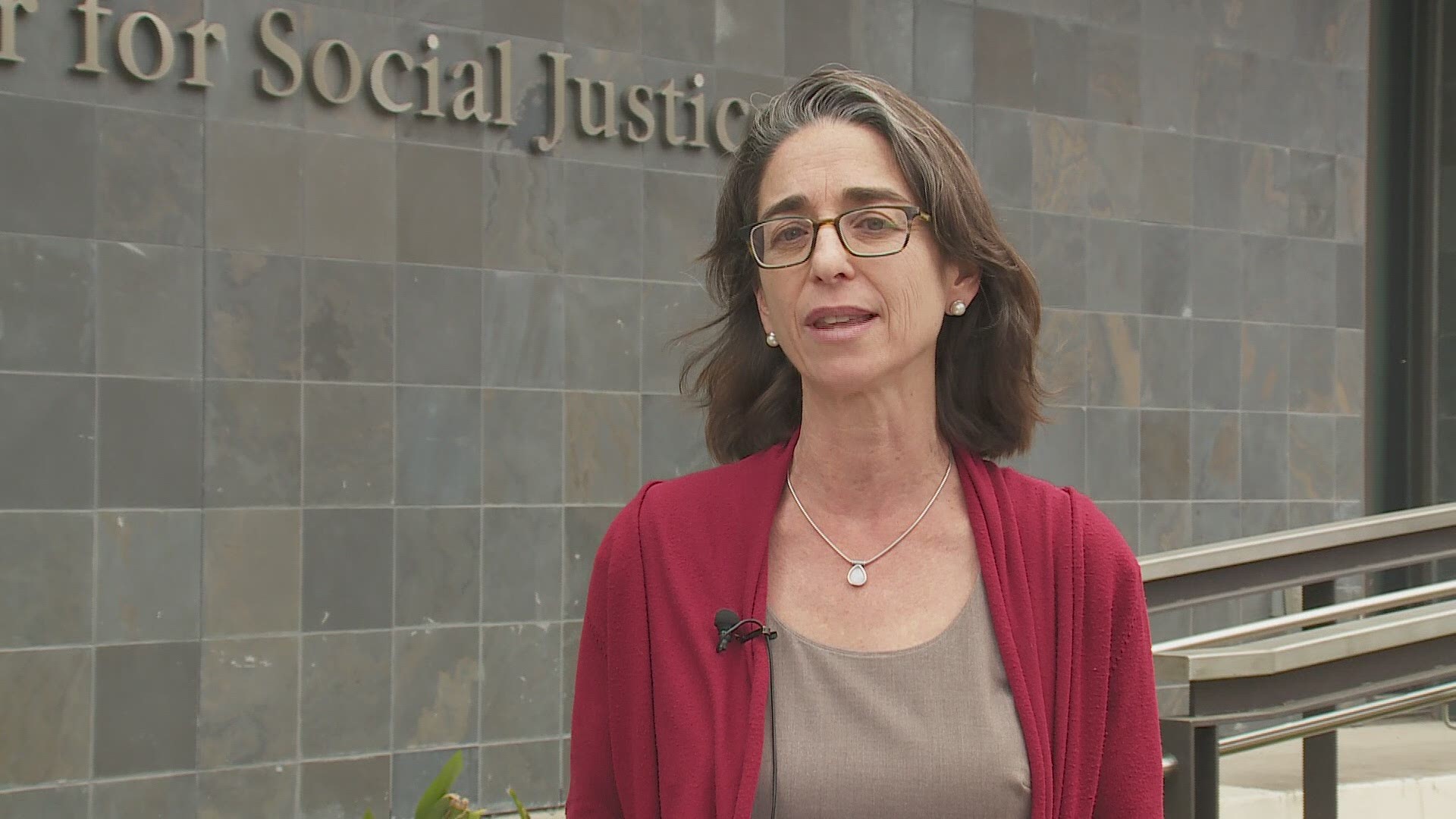NEW ORLEANS — Rising rents, low wages, a system that is heavily-tilted toward landlords and the enduring effects of redlining have helped lead to a high rate of evictions in New Orleans – one that is nearly twice the national average, according to a new study conducted by Loyola University’s College of Law.
“We really want to show that this is a community problem,” Davida Finger, Professor at Loyola Law School said.
Finger along with Breonne DeDecker, with Jane Place Neighborhood Sustainability Initiative, have worked years on the study. They found an alarming number of evictions throughout New Orleans.
“Based on where you live, you have a higher probability of being faced with a court-ordered eviction any given year,” DeDecker said.
The study, conducted from Jan. 1, 2015 to June 30, 2018, looks at data compiled from city court records, which highlights the following neighborhoods: Central City, Hollygrove, St. Roch, Treme and Little Woods.
The study says that in a city where 55 percent of the residents are in rental units, 24,000 residents were displaced during the 3-and-a-half-year time period.
"It shows that the eviction rate in Orleans is, in many locations, double the national eviction rate. And in some neighborhoods, it's as high as four times the national eviction rate," Finger said.
Those primarily and disproportionately affected by those evictions are African-Americans.
"It's become extremely racialized and that again speaks to the relationship between race and poverty,” DeDecker said.
The study found in majority black neighborhoods, one in four renters experienced a court-ordered eviction.
In neighborhoods that are majority white, one in 24 renters experienced a court-ordered eviction.
"The report only captures folks who've gone through the formal court eviction process. So as disturbing as the numbers are, it's important for the community to keep in mind that the crisis that we're facing is actually much larger than what's captured here in the report,” Cashauna Hill said.
The problem is seen as especially acute in a city that has seen rents rise nearly 50 percent (adjusted for inflation) since 2000, while wages (also adjusted for inflation), have actually decreased by eight percent.
Cashauna Hill, Executive Director with the Greater New Orleans Fair Housing Center says the study scratches the surface of a major issue.
"We know that people are being affected by not only evictions through the court process -- but they're also being affected by unlawful or informal evictions. We get calls from people everyday, who have landlords who have just illegally locked them out, who've placed their belongings on the street, rather than going through the process that we do have in the court system,” Hill said.
Hill, Finger and DeDecker say they’re hoping this leads to future laws that’ll help tenants They’re working to try and bring Senate Bill 28 up for debate this legislative session.
"It will allow a longer grace period for renters to pay their rent, 10 days. And that's really a win-win situation for tenants and landlords. Landlords want to get paid and tenants -- a little bit more time to pay their rent,” Finger said.
The report cited laws that heavily favor landlords, allowing them to demand rental payments even if the housing unit has water leaks, pests, wiring problems or other health issues.
Those who don’t make payments can be evicted, starting a spiraling set of circumstances that limit the ability to find another place to live. An eviction itself, once put on a person’s record, can restrict places they can rent. In addition, if the landlord doesn’t return a security deposit, those on limited incomes can have problems coming up with a deposit for another unit elsewhere.
The study suggested several ways to lessen evictions, mostly centering around rights for renters and sufficient notice of intended evictions.
Some of the other major findings include:
- 63 percent of the city’s renters are ‘cost burdened’ meaning they pay 30 percent or more of their household income for housing.
- 37 percent are 'severely cost burdened,' spending 50 percent or more of their income on housing
- Four out of five of those who are cost burdened are black
- Shifting from public housing to a housing choice voucher program limits the rights of renters as public housing residents were allowed a grievance process to appeal an eviction.
- Public housing residents can only be charged 30 percent of their income for housing, while Section 8 renters (who rent from private landlords) have those charges capped at 40 percent of income the first year and no cap thereafter
- Median income for white families in New Orleans is $65,689, while for black families it is $29,296, making those families more likely to rent, more likely to spend a higher percentage of income on rent, more likely to be evicted for financial reasons and more susceptible to the loss of a security deposit.
- Communities that experienced historic redlining (a process where some neighborhoods were colored in red by financial institutions, which indicated they were ineligible to receive loans and mortgages) were more likely to be cost burdened.
Those who conducted the study will have a community conversation on the report Tuesday, March 26 at 6 p.m. at the Tulane Small Center, 1725 Baronne Street.

